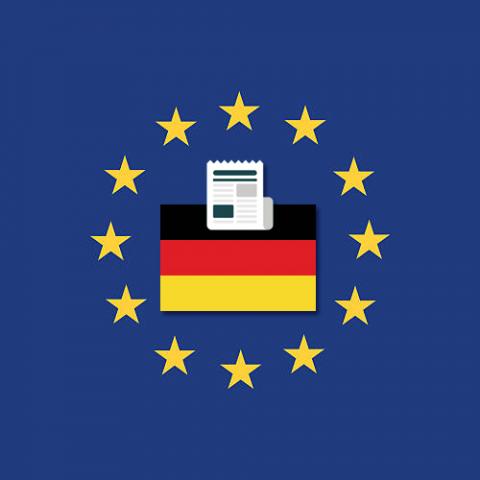
Background information
- Date of decision: 31 May 2023
- Cross-border case or national case: National case
- Legal references: Art. 5(1)(a) GDPR, Art. 15 (1)(h) GDPR, Art. 22(3) GDPR
- Decision: Administrative fine
- Key words: Algorithms, Finance
Summary of the Decision
Origin of the case
A Berlin based bank offered a credit card on their website. Using an online form, the bank requested various data about the applicant's income, occupation and personal details. Based on the information requested and additional data from external sources, the bank's algorithm rejected the customer's application without any particular justification. The algorithm is based on criteria and rules previously defined by the bank. Since the client had a good credit rating and a regular high income, he doubted the automated rejection and complained to the Berlin data protection commissioner.
Key Findings
Even when asked by the complainant, the bank only provided blanket information about the scoring procedure, detached from the individual case. However, it refused to tell him why it assumed a poor creditworthiness in his case. The complainant was thus unable to understand which data basis and factors formed the basis of the automated rejection and on the basis of which criteria his credit card application had been rejected accordingly. Without this individual case justification, however, it was also not possible for him to meaningfully challenge the automated individual decision.
Decision
A bank is obliged to inform its customers about the main reasons for a rejection when making an automated decision on a credit card application. This includes concrete information on the data basis and the decision-making factors as well as the criteria for the rejection in the individual case. The Berlin DPA found that the bank had violated Article 22(3), Article 5(1)(a) and Article 15(1)(h) GDPR in the specific case. In imposing the fine, the Berlin DPA took into account in particular the high turnover of the bank and the intentional design of the application process and the information. Among other things, the fact that the company admitted the violation and had already implemented changes to the processes and announced further improvements was deemed to reduce the fine.
For further information:
The news published here does not constitute official EDPB communication, nor an EDPB endorsement. This news item was originally published by the national supervisory authority and was published here at the request of the SA for information purposes. Any questions regarding this news item should be directed to the supervisory authority concerned.